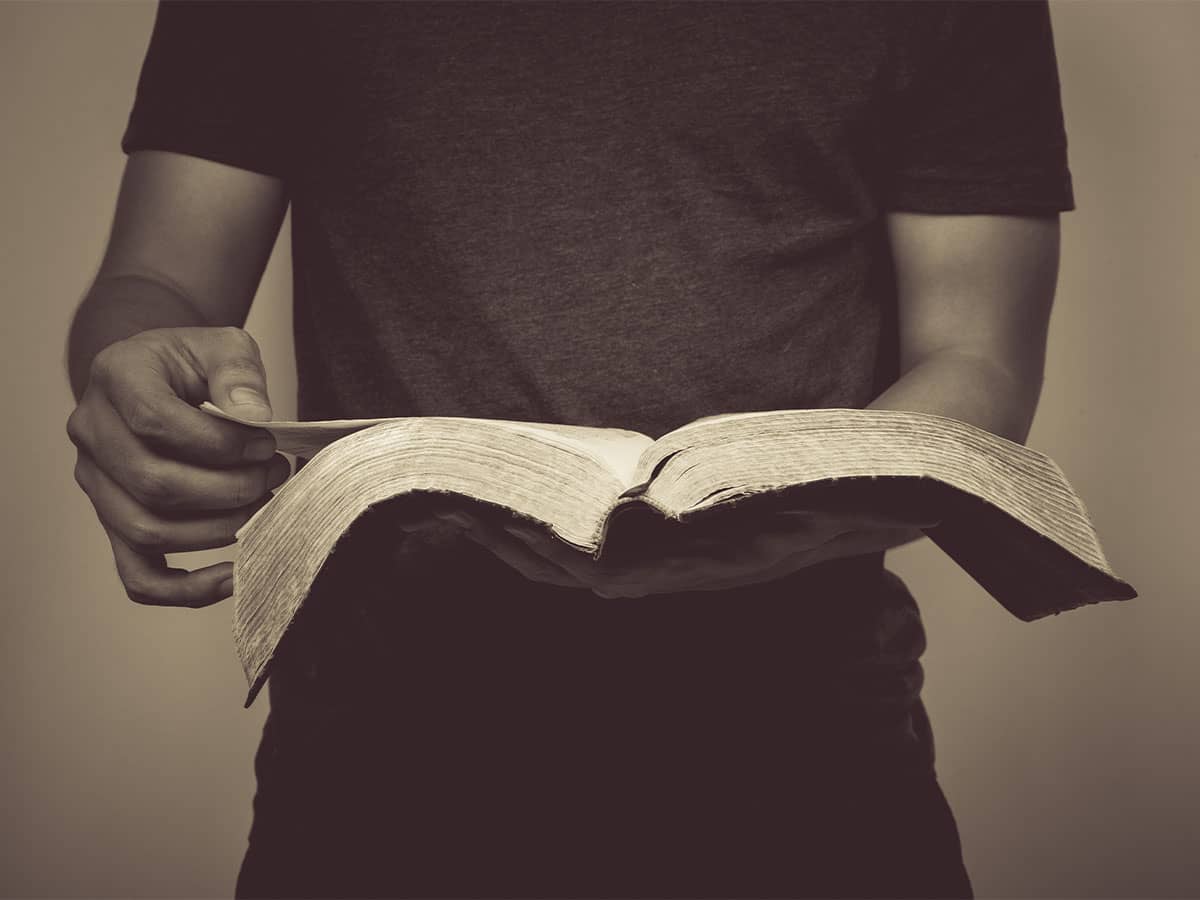
To understand the biblical teaching on oaths, we must first understand what an oath is. Is there a set pattern for who swears an oath and by what?
This concept may be most familiar from childhood when kids demand that someone "swear on their mother's life" or something similar. The idea is that you swear by something greater than you or more precious to you than the claim you're making. Certainly, oaths, pledges, and vows have been stated before kings and queens throughout human history—the lesser pledging to or on something greater than themselves.
In the modern context, the U.S. Pledge of Allegiance is perhaps the most well-known example:
"I pledge allegiance to the Flag of the United States of America, and to the Republic for which it stands, one Nation under God, indivisible, with liberty and justice for all."
Jesus' Teaching on Oaths
So, what does the Bible have to say about oaths? Jesus was clear on the matter. In Matthew 5:33–37, He said:
"Again, you have heard that it was said to those of old, 'You shall not swear falsely, but shall perform your oaths to the Lord.' But I say to you, do not swear at all: neither by heaven, for it is God's throne; nor by the earth, for it is His footstool; nor by Jerusalem, for it is the city of the great King. Nor shall you swear by your head because you cannot make one hair white or black. But let your 'Yes' be 'Yes,' and your 'No,' 'No.' For whatever is more than these is from the evil one."
Jesus effectively replaced the Old Testament guidance on avoiding false oaths with a new principle: We are not to swear by anything at all—not by Heaven, Earth, or anything else. We are to be people of faith who let our "yes" be yes and our "no" be no.
James' Reinforcement of Jesus' Message
The Apostle James reinforced this message in James 5:12. He gives a set of instructions, including warnings against injustice, patience in suffering, and treating each other kindly rather than complaining about each other. But in verse 12, he states:
"But above all, my brethren, do not swear, either by heaven or by earth or with any other oath. But let your 'Yes' be 'Yes,' and your 'No,' 'No,' lest you fall into judgment."
James places such emphasis on this directive that he ranks it above fighting injustice, patience in suffering, and treating others with respect. Why would swearing oaths be so significant? By swearing an oath, we cut ourselves off from God's strength and rely instead on our own saying, in effect, "You can trust me because of the oath I have sworn," as if our willpower alone could guarantee our promises.
Faith-Righteousness Versus Works-Righteousness
Scripture never encourages Christian believers to rely on their ability to do things perfectly but to lean instead on the grace of God, through which we are strengthened to accomplish all things in Christ. We cannot be righteous by our own merits, but swearing a vow implies, "I can do this because I really mean it and will give it my all." This might sound admirable, but it shifts us away from reliance on grace and toward dependence on our strength, embodying works-righteousness rather than faith-righteousness.
God's Oath and Faithfulness
Scripture teaches that only God is capable of swearing an oath because only God is truly faithful and trustworthy. A perfect example of this is the covenant between God and Abraham. God didn't ask Abraham to swear anything; instead, He took both parts of the pledge upon Himself. Hebrews 6:13–17 explains this unique oath:
"For when God made a promise to Abraham since he had no one greater by whom to swear, he swore by himself…So when God desired to show more convincingly to the heirs of the promise the unchangeable character of his purpose, he guaranteed it with an oath."
The covenant God made with Abraham was that through him, all families of the earth would be blessed—a covenant that Jesus did not override and that remains in effect today. This gospel-aligned promise was so vital that God wouldn't let Abraham take any responsibility for keeping it. Abraham would have fallen short, as any of us would, so God swore by Himself. The Gospel that flows from this covenant is entirely reliant on the grace and faithfulness of God, not on human performance.
Avoiding Dependence on Personal Integrity
We know that we are clothed in Jesus' righteousness rather than our own. Through Jesus, we have been given all things necessary for life and godliness. Our spirits are alive in Him, and if we turn back to trying to earn God's favor through our behavior, we fall from grace.
This, then, is the core reason we are warned against swearing an oath. An oath places our faithfulness as the key factor in determining an outcome rather than relying on grace and living a life of love and faithfulness from the overflow of the Spirit. Swearing an oath means stepping away from the grace that saves us.
The Challenge of Modern-Day Oaths and Vows
This teaching on oaths presents some interesting challenges, given the vows, oaths, and pledges society often expects us to make. Should we pledge obedience to a king or a queen? To a state? Should we make wedding vows? The biblical prohibition on swearing oaths is deep and challenging, and examining it presents surprising insights. Whatever conclusions we reach, we can rest assured that God has sworn our salvation by His own faithfulness. He requires nothing from us to earn it. We are saved by grace and can learn to live by it, too.

